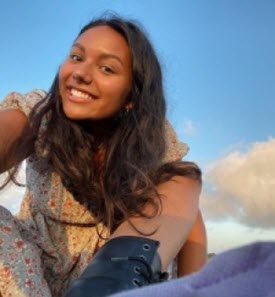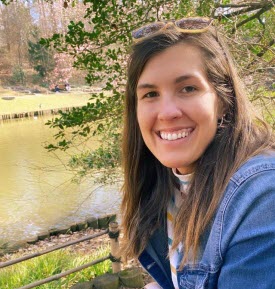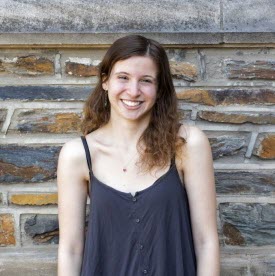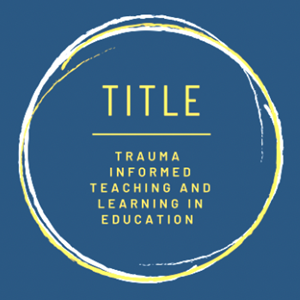
Since 2020, the Developing Best Practices for Trauma-Informed Teaching and Learning project team, led by team leaders Jan Holton and Warren Kinghorn and project manager Stephanie Hargrove, has been exploring the ways that trauma impacts students’ experiences in higher education. This project is supported with generous funding from the Pittulloch Foundation as well as Bass Connections.
Imagine a Duke lecture hall filled with one hundred students.
When we picture this, what do we see? A diverse group of accomplished individuals, to be certain; students who are eager to learn. But can we see beyond their polished credentials? Can we imagine what experiences they bring into the classroom?
So begins the speculative exercise at the center of a “Trauma Engaged Duke” seminar, a series led by the Developing Best Practices for Trauma-Informed Teaching and Learning project team.

In this imaginary hundred-person lecture hall, each student deserves the best learning experience Duke can offer. But according to the team’s research, about thirteen of them have seen intimate partner violence in the home, 22 are survivors of sexual abuse and many more have been impacted by experiences of racism, heterosexism, classism, ableism or other forms of oppression. In “every corner of Duke where people are interacting,” explained undergraduate team member Christina Lewis (Religious Studies ’24), trauma is relevant.
Team leader Jan Holton, PhD (associate professor of the practice of pastoral theology and care, Duke Divinity School) has spent much of her career tending to trauma. She has worked with populations at high risk for trauma, from combat veterans and people experiencing homelessness in the United States to communities of refugees in the eastern Congo, South Sudan and Uganda. But in teaching future chaplains and ministers about pastoral care at Duke, she saw that, while there were considerable scholarly resources on trauma-informed teaching and learning geared at primary and secondary education, the same could not be said for the university level.
That’s where Holton and co-team leader Warren Kinghorn, MD, DTh (Esther Colliflower Associate Research Professor of Pastoral and Moral Theology, Duke Divinity School and associate professor of psychiatry, Duke School of Medicine) want to step in.
Holton emphasized how much they learned from others addressing trauma at Duke, such as Counseling and Psychological Services (CAPS) and the Women’s Center, even before they formed their Bass Connections team. In consulting with such groups, they discovered shared curiosity about what was going on in Duke’s real-life lecture halls.
“Our task is not to repeat what others have done, but to find the gaps, and that’s how we came to the question of the classroom,” Holton explained. “The heart of what we’re wanting to do is to improve the learning experience for students. To do that we have to go in lots of different directions to figure out how to give all students the best opportunity for learning in the classroom.”
To say that the project has become multidirectional, as well as a multi-institutional, multilevel and multidisciplinary, is no exaggeration. Since 2020, the team has conducted seminars and focus groups with undergraduate and Divinity School students with plans to expand to students in the School of Medicine. Ultimately, the team hopes to conduct focus groups with faculty from each of these areas as well.

After Holton and Kinghorn conducted outreach and laid the groundwork, their 2020-2021 project team began reviewing existing literature and crafting protocols for what would become the Trauma Engaged Duke seminars. The intensity and rigor of this preparation stood out to graduate team member Hannah Smith, who graduated from Duke Divinity School with a master of divinity degree in 2022.
“I learned a lot about the accountability of research,” Smith said of the team’s experience learning from previous scholarship and seeking Institutional Review Board (IRB) approval for their own work. “There’s something beautiful about this being so thorough, and that puts the integrity into it.”
After this preparation phase, the team began to host Trauma Engaged Duke, or TED, seminar events. These sessions aimed to inform undergraduate and Divinity School students about the definitions and prevalence of trauma and how it may show up in the classroom; they also addressed topics such as shame and post-traumatic growth.
However, the demand for these seminars was not as high as the team had hoped. “What people really wanted was to share their experience and know that their comments were making a difference,” noted undergraduate team member Anna Greenleaf (Psychology and Statistical Science ’23), who has been a member of the team since its first year. This feedback prompted the team to pivot toward conducting focus groups with undergraduate and Divinity School students while still offering TED events upon request.

This pivot was meaningful to Greenleaf as a student and as a researcher herself. “It took humility to admit that our approach wasn’t working, and I appreciated that,” she said. “Research is a process and seeing team leaders be honest about that was a huge deal to me.”
It was at this point that Stephanie Hargrove, PhD (clinical associate, psychiatry and behavioral sciences) joined the 2021-2022 team as a faculty contributor and project manager, helping to lead it into its new phase. She explained the team’s methodology in planning and conducting focus groups: “We are trying to take on a participatory action research framework – we don’t want to engage in research without the people who are impacted by it the most.”
The participatory action model continued to be central this summer as Hargrove guided Lewis and Greenleaf in coding the focus group data gathered so far. Together, they combed through transcripts and assigned codes to pieces of dialogue. (For example, a phrase or sentence in which the subject discussed how trauma was approached in a course syllabus might be coded “syllabus.”) The three then met to review each other’s codes and develop graduated groupings, such as categories and themes.
Hargrove pointed out that hand-coding requires dedication to inductive reasoning, including “learning from the data instead of coming from our own theory and seeing how the information fits.” It is key that the researchers can identify with the groups they are studying. Fortunately, Hargrove said, team members with different affiliations can collaborate to analyze the data.
This analysis will be one of the tasks for this year’s project team. In addition, team members will continue to conduct focus groups with undergraduate and Divinity School students this fall, as well as finalizing and implementing their protocol for the School of Medicine. Then, they hope to begin focus groups with faculty in all three areas.
“I think our work is rooted in how we can come together as both students and educators to mitigate those issues” of potential harm and retraumatization in the classroom, Lewis reflected, “because the school environment affects everyone regardless of their role.”
The students on the team have, in their own estimation, been affected by this project as well. For Lewis, a religious studies major on the premed track, it has been an opportunity to connect with faculty who inspire her. She said of Hargrove, Holton and Kinghorn, “Having mentors, people I can look up to in terms of career trajectory, has been awesome … I couldn’t ask for better team leaders.”
Similarly, Greenleaf noted how the faculty members have created an environment of care within the team and toward their research subjects, including “prioritizing people’s well-being.” She and Lewis both emphasized the advantages of interdisciplinary research and mentorship. By crossing both learning levels and institutions, students on the team are able to benefit from each other’s different perspectives and areas of expertise. Noting that the Divinity School can sometimes feel cloistered, Smith felt that her work as a team member affirmed the validity of her theological perspective in an academic space: “It felt like a breath of fresh air.”
This diversity of academic backgrounds also helps maximize the potential impact of the team’s work: members and leaders not only bring different insights to the team, but carry the team’s insights out. Hargrove explained with a smile that the team members are “all pretty inspiring in their own right — what we affectionately call a team of trauma champions … All of us have gone into our own spheres and tried to disseminate information and be advocates.”

This sense of mutual inspiration seems to pervade the team. When explaining what she has gained from leading this project, Holton noted that while her own research is thoroughly interdisciplinary, she usually works alone. “When I go into dangerous areas, I don’t take students with me,” she said. The Bass Connections team offers a refreshing contrast: “What has been really exciting is working with a student team … really, the commitment and brilliance of students working together has been inspiring.”
Ultimately, this team of teachers and learners, current and future clinicians, ministers and scholars, seems primed to make a difference in classrooms at Duke and beyond. One of Smith’s comments seems particularly apt: “Research, humanity, dignity and change aren’t separate,” she noted, “but deeply intertwined.” These trauma champions hope that their continued work will help make space in every lecture hall for students as people, embedded in community, embodying lived experience, carrying so much more than backpacks and credentials.
This article was originally published on the Bass Connections website.